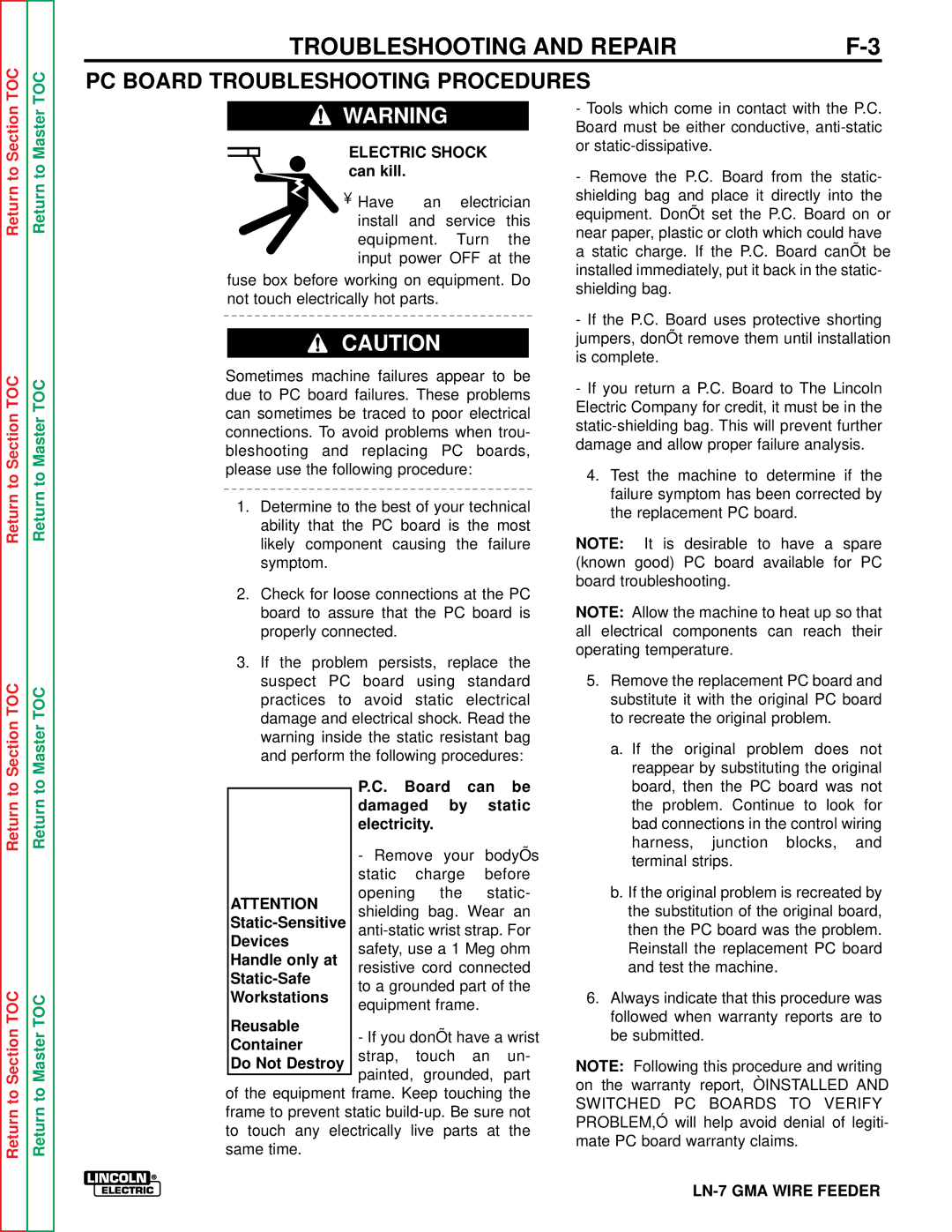
Return to Master
Return to Master TOC
Return to Master TOC
Return to Master TOC
WARNING
ELECTRIC SHOCK can kill.
• Have | an | electrician | |
install | and | service | this |
equipment. | Turn | the | |
input power OFF at the fuse box before working on equipment. Do not touch electrically hot parts.
![]() CAUTION
CAUTION
Sometimes machine failures appear to be due to PC board failures. These problems can sometimes be traced to poor electrical connections. To avoid problems when trou- bleshooting and replacing PC boards, please use the following procedure:
1.Determine to the best of your technical ability that the PC board is the most likely component causing the failure symptom.
2.Check for loose connections at the PC board to assure that the PC board is properly connected.
3.If the problem persists, replace the suspect PC board using standard practices to avoid static electrical damage and electrical shock. Read the warning inside the static resistant bag and perform the following procedures:
P.C. Board can be damaged by static electricity.
-Remove your body’s static charge before
opening the static- shielding bag. Wear an
- If you don’t have a wrist strap, touch an un- painted, grounded, part
of the equipment frame. Keep touching the frame to prevent static
-Tools which come in contact with the P.C. Board must be either conductive,
-Remove the P.C. Board from the static- shielding bag and place it directly into the equipment. Don’t set the P.C. Board on or near paper, plastic or cloth which could have a static charge. If the P.C. Board can’t be installed immediately, put it back in the static- shielding bag.
-If the P.C. Board uses protective shorting jumpers, don’t remove them until installation is complete.
-If you return a P.C. Board to The Lincoln Electric Company for credit, it must be in the
4.Test the machine to determine if the failure symptom has been corrected by the replacement PC board.
NOTE: It is desirable to have a spare (known good) PC board available for PC board troubleshooting.
NOTE: Allow the machine to heat up so that all electrical components can reach their operating temperature.
5.Remove the replacement PC board and substitute it with the original PC board to recreate the original problem.
a.If the original problem does not reappear by substituting the original board, then the PC board was not the problem. Continue to look for bad connections in the control wiring harness, junction blocks, and terminal strips.
b.If the original problem is recreated by the substitution of the original board, then the PC board was the problem. Reinstall the replacement PC board and test the machine.
6.Always indicate that this procedure was followed when warranty reports are to be submitted.
NOTE: Following this procedure and writing on the warranty report, “INSTALLED AND SWITCHED PC BOARDS TO VERIFY PROBLEM,” will help avoid denial of legiti- mate PC board warranty claims.
